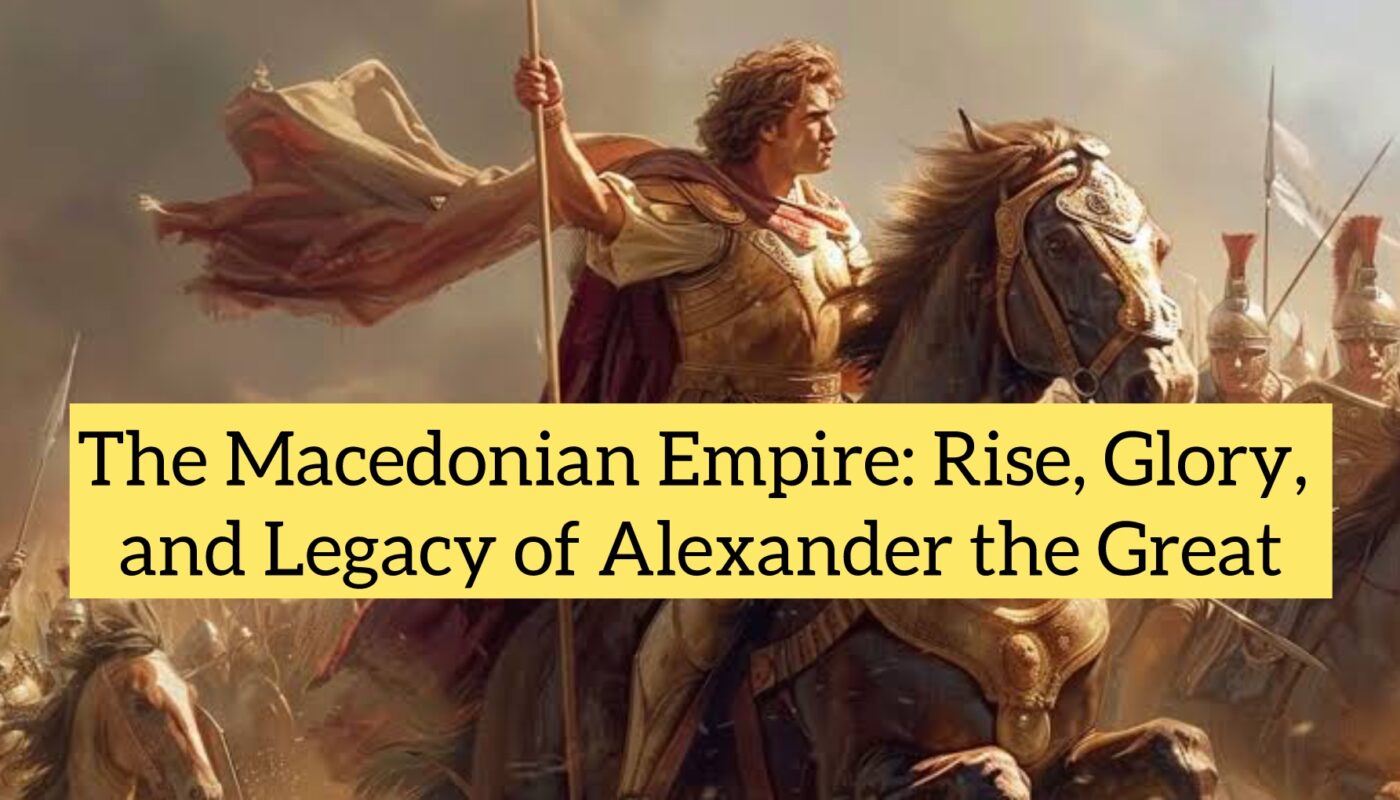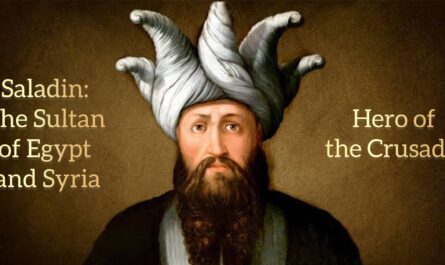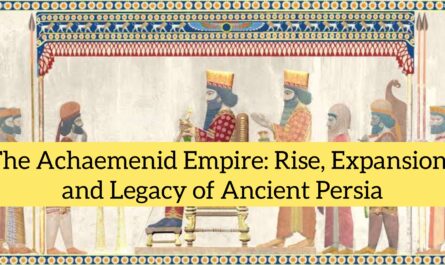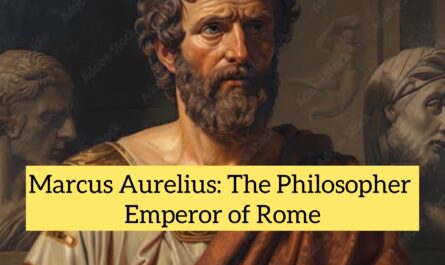Introduction
The Macedonian Empire, forged by the brilliant military mind of Alexander the Great, was one of the largest and most influential empires in ancient history. At its peak, it stretched from Greece to Egypt and as far east as India, encompassing vast territories and a multitude of cultures.
In just over a decade, Alexander transformed a small kingdom in northern Greece into a global superpower, spreading Hellenistic culture across three continents. Although short-lived, the Macedonian Empire left an enduring legacy that shaped the ancient world and influenced Western civilization for centuries.
Origins of Macedonia
Geographic and Cultural Background
Macedonia was located in the northern part of the Greek peninsula, bordered by Thrace to the east, Epirus to the west, and Thessaly to the south. Its people, the Macedonians, spoke a dialect of Greek and shared cultural traits with other Hellenic peoples but were often viewed as semi-barbaric by their southern neighbors.
Rise Under King Philip II
The transformation of Macedonia into a dominant power began under Philip II (reigned 359–336 BCE). Key achievements include:
-
Reorganization of the army into the phalanx formation with longer spears (sarissas)
-
Unification of Greek city-states through diplomacy and conquest
-
Founding the League of Corinth, positioning Macedonia as the leader of a Greek alliance against Persia
Philip’s assassination in 336 BCE thrust his 20-year-old son Alexander III into power.
Alexander the Great and the Expansion of the Empire
Early Consolidation
Upon becoming king, Alexander the Great quickly consolidated power, quelling revolts in Thebes and securing loyalty across Greece. In 334 BCE, he launched his historic campaign against the Achaemenid Persian Empire, the dominant superpower of the time.
Major Campaigns and Conquests
-
Battle of Granicus (334 BCE)
-
First major victory over Persian satraps in Asia Minor.
-
-
Battle of Issus (333 BCE)
-
Defeated King Darius III, capturing his family.
-
-
Siege of Tyre (332 BCE)
-
Demonstrated Alexander’s ingenuity by building a causeway to reach the island city.
-
-
Conquest of Egypt (332 BCE)
-
Founded Alexandria, one of over 20 cities named after him.
-
Declared a pharaoh and son of the god Amun.
-
-
Battle of Gaugamela (331 BCE)
-
Final decisive victory over Darius III.
-
Led to the fall of the Persian Empire and capture of Babylon, Susa, and Persepolis.
-
Eastern Expansion and the Indus Campaign
-
After taking control of Persia, Alexander moved further east into Bactria (modern-day Afghanistan) and the Indus Valley.
-
Won the Battle of the Hydaspes (326 BCE) against King Porus.
-
His troops, weary and homesick, eventually refused to march further east.
Death and Fragmentation
Alexander died in Babylon in 323 BCE at the age of 32 under mysterious circumstances (possibly malaria, poisoning, or typhoid). He left no clear heir, resulting in a power vacuum and the eventual disintegration of the empire.
Administration and Governance
Cultural Fusion: Hellenism
Alexander promoted a policy of cultural integration:
-
Encouraged marriages between Greeks and local populations
-
Adopted Persian dress and customs
-
Spread Hellenistic culture, blending Greek, Egyptian, Persian, and Indian elements
This fusion laid the groundwork for the Hellenistic Era, a period of immense scientific, artistic, and philosophical progress.
Founding of Cities
Alexander founded more than 20 cities, the most famous being Alexandria in Egypt, which became a major center of learning, trade, and culture.
Satrap System
He retained much of the Persian administrative system, appointing satraps (provincial governors) but often pairing them with Greek or Macedonian military officials to ensure loyalty.
Division of the Empire: The Diadochi Wars
After Alexander’s death, his generals, known as the Diadochi (Successors), fought for control of the empire. Key figures included:
-
Ptolemy (Egypt)
-
Seleucus (Babylon and the East)
-
Antigonus (Asia Minor)
-
Cassander (Macedonia and Greece)
-
Lysimachus (Thrace)
These wars resulted in the fragmentation of the empire into several Hellenistic kingdoms:
-
Ptolemaic Kingdom in Egypt
-
Seleucid Empire in the Near East
-
Antigonid Dynasty in Macedonia
While Alexander’s unified empire did not survive, his legacy endured in these successor states.
Legacy of the Macedonian Empire
Cultural Impact
The Hellenistic Age (323–31 BCE), born from the Macedonian conquests, saw:
-
The spread of Greek language and education
-
Flourishing of philosophy, mathematics, and science
-
Establishment of Greek-style cities across Asia and Africa
Military Innovation
The Macedonian phalanx and combined arms tactics became models for later armies. Alexander’s strategy and battlefield ingenuity are still studied in modern military academies.
Influence on Rome
The Roman Republic admired and emulated Macedonian and Hellenistic culture. Many Roman leaders, including Julius Caesar, viewed Alexander as a model of leadership and conquest.
Key Cities of the Macedonian Empire
| City | Modern Location | Significance |
|---|---|---|
| Pella | Northern Greece | Birthplace of Alexander the Great |
| Babylon | Iraq | Administrative center after Persia’s fall |
| Alexandria | Egypt | Center of learning and culture |
| Persepolis | Iran | Symbol of Persian conquest |
| Susa | Iran | Treasury of the Achaemenid Empire |
Timeline of Major Events
-
359 BCE: Philip II becomes king of Macedonia
-
336 BCE: Alexander ascends to the throne
-
334 BCE: Begins Persian campaign
-
331 BCE: Victory at Gaugamela
-
326 BCE: Defeats Porus in India
-
323 BCE: Alexander dies in Babylon
-
321–281 BCE: Wars of the Diadochi
-
31 BCE: End of Hellenistic period (Battle of Actium)
Conclusion
The Macedonian Empire, though short-lived, was one of the most transformative empires in history. Through the military genius of Alexander the Great, it not only defeated the mighty Persian Empire but also reshaped the ancient world by spreading Greek culture and ideas far beyond the borders of Greece.
Its political unity may have dissolved quickly, but its cultural and intellectual impact lasted for centuries, influencing Rome and laying the foundation for much of Western civilization. The legacy of the Macedonian Empire is a testament to the enduring power of vision, leadership, and cultural fusion.
FAQs
Who founded the Macedonian Empire?
While Philip II laid the foundation, his son Alexander the Great created the empire through military conquest.
How large was the Macedonian Empire?
At its height, the empire stretched from Greece and Egypt to India, covering over 5 million square kilometers.
What happened after Alexander the Great died?
The empire fragmented into several kingdoms ruled by his generals, leading to the Hellenistic Age.
Was the Macedonian Empire Greek?
Macedonians were Greek-speaking people with shared cultural elements, but they were often seen as distinct from city-state Greeks like Athenians or Spartans.
What was the most important city in the Macedonian Empire?
Alexandria in Egypt became the most prominent city, known for its lighthouse, library, and status as a cultural hub.



